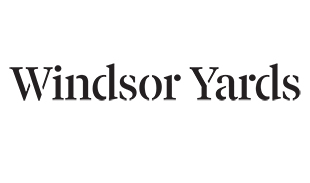A mini-pride of Lion Cubs has been decorated by schools, community groups and charities
In addition to the large lions, a mini-pride of 15 cute lion cubs was decorated by schools, children's art groups and designers.
Pupils and teachers have loved being part of the creative process and seeing their lions displayed in pride of place on the 'mane' sculpture trail across Windsor, Ascot, Old Windsor and Maidenhead
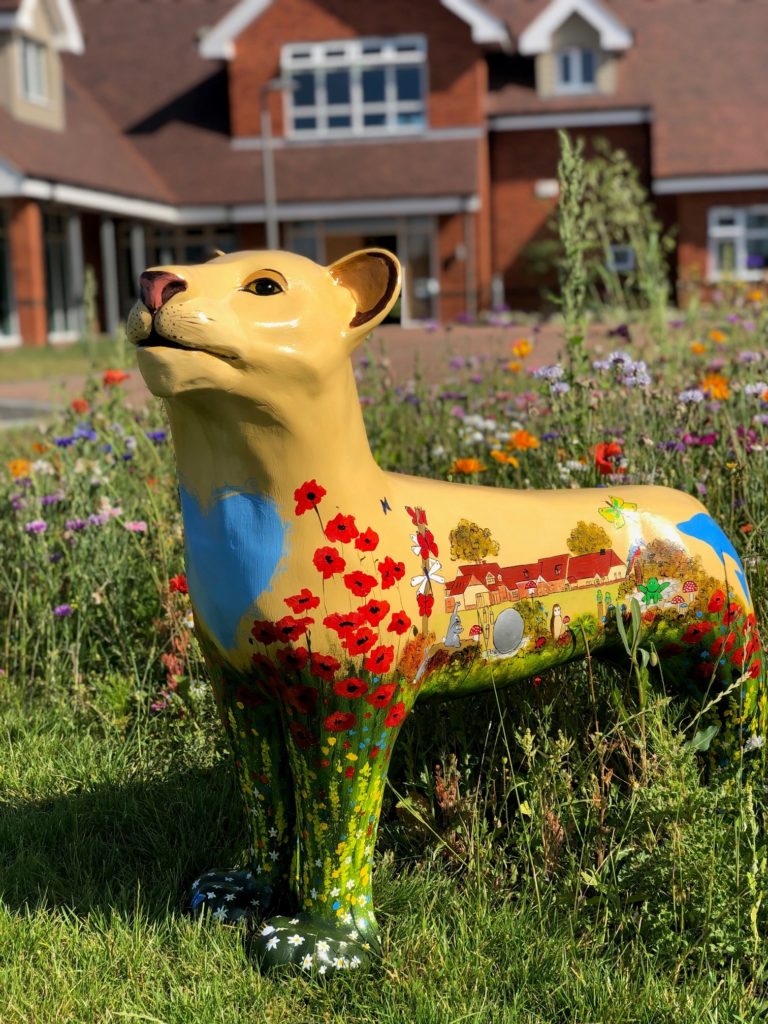
Simba was sponsored by Gold Sponsor LEGOLAND Windsor Resort for the Alexander Devine Children's Hospice Service and was displayed near their large lion, Legolas in Royal Windsor Shopping by Windsor Castle.
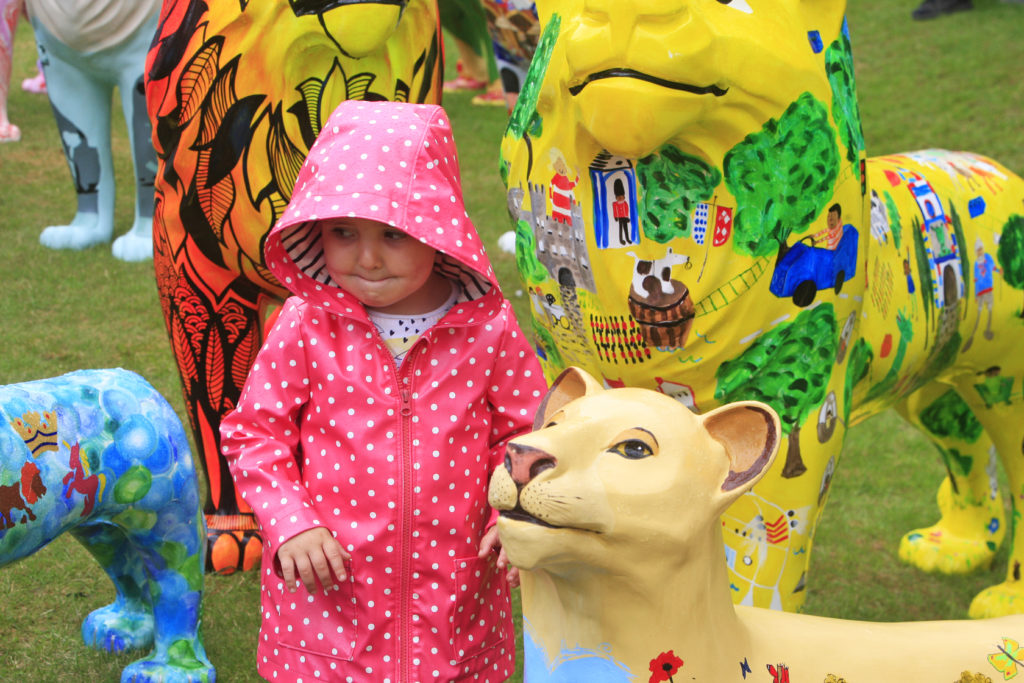
A young visitor to the media launch braves the showers to inspect the cubs, displayed with their larger counterparts on the Headmaster's lawn at St George's School, Windsor Castle.
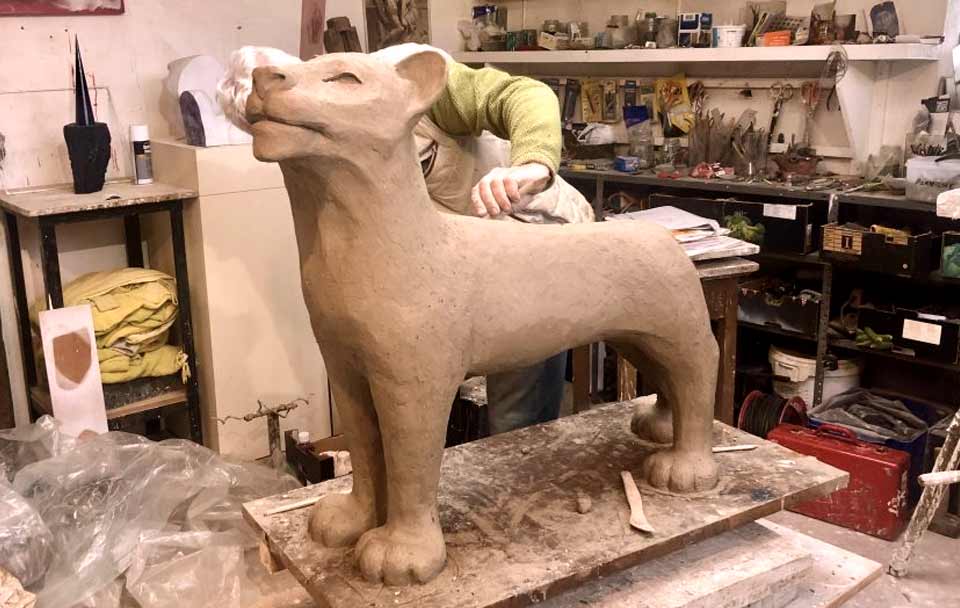
The original clay mould for the cub taking place in sculptor Alan Dun's studio near Bath.
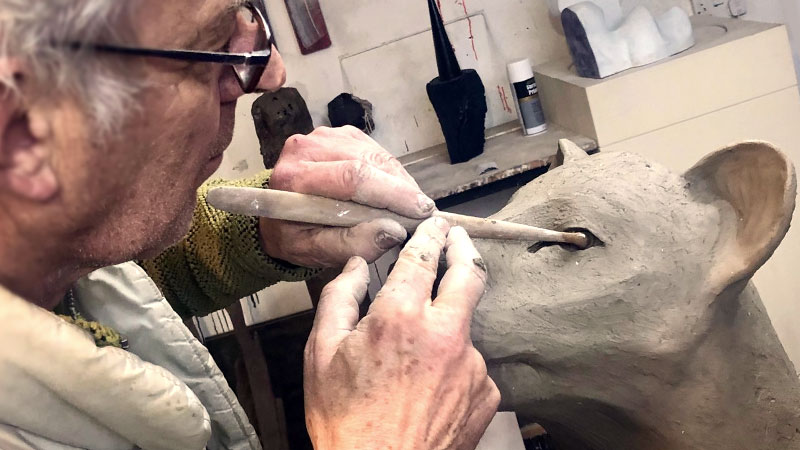
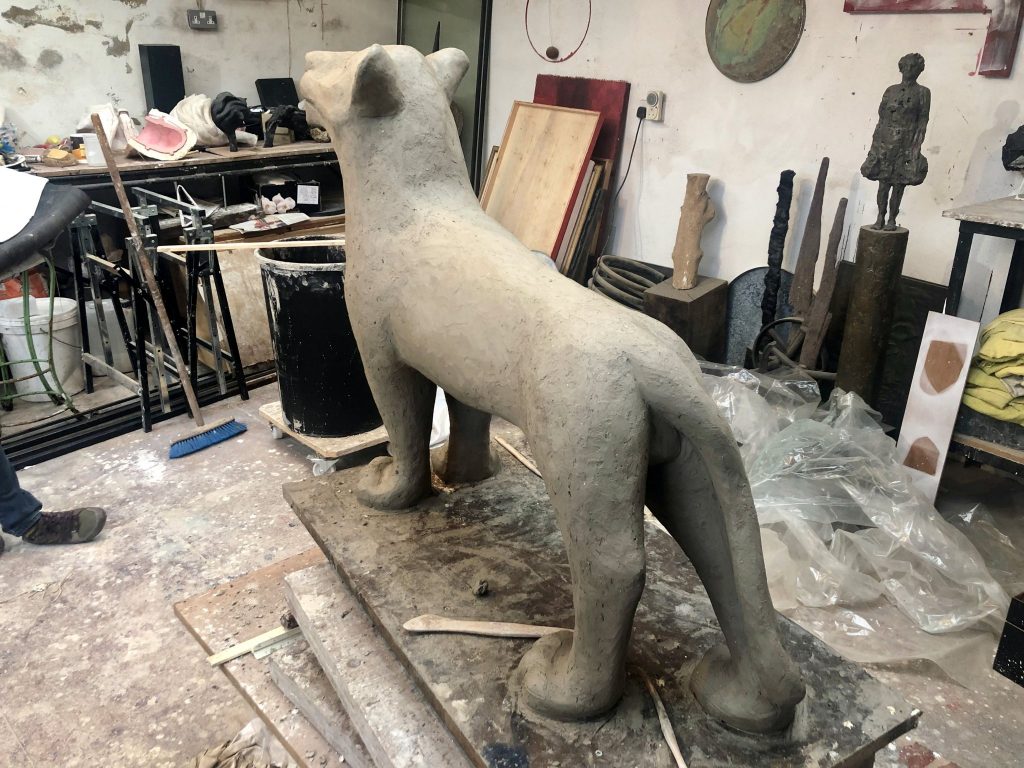
The next stage was creating a fibreglass mould of the clay, then producing a fibreglass cub from the mould. The master cub was then sent to the mane fibreglass factory, which created a master mould from which the cub pride was produced.
The mould was made up of 12 individual parts, which were coated with fibreglass, left to dry, then popped out of the mould and all the pieces joined together. The joins are then sanded down by hand and then sprayed with a paint primer for artists to paint. Each cub takes two days to make - a long process, but definitely worth it!
The cute lion cubs took pride of place around the Royal Borough for nearly three months this summer
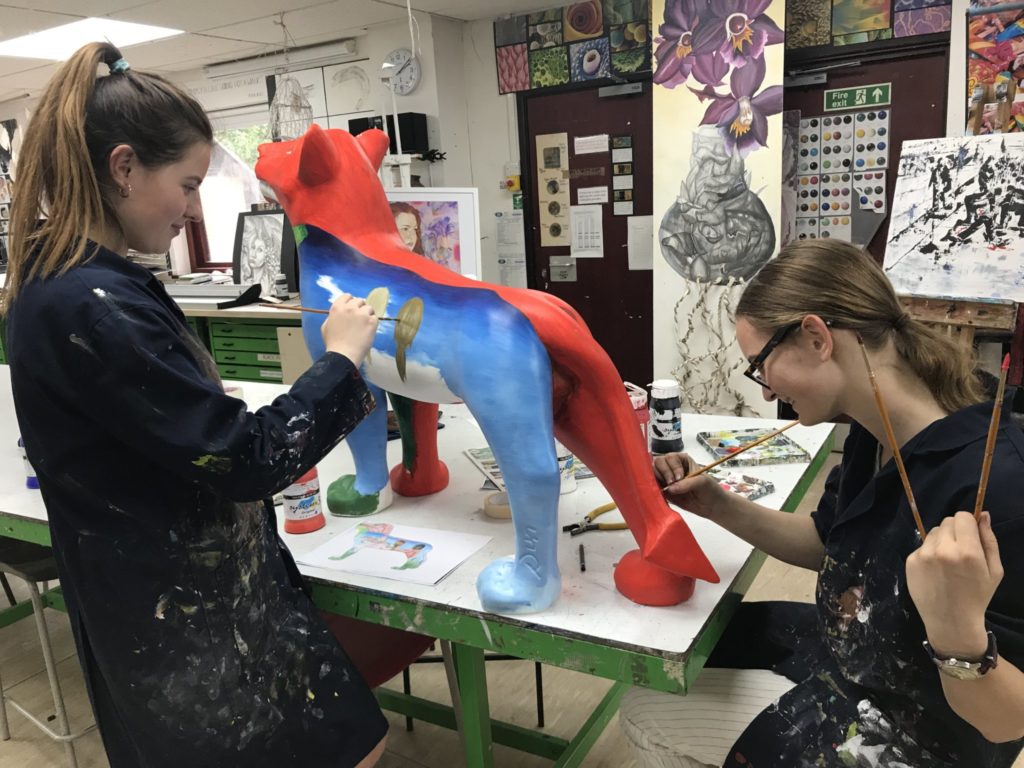
Pupils from St George's Ascot painting 'George', which was displayed outside Ascot Racecourse
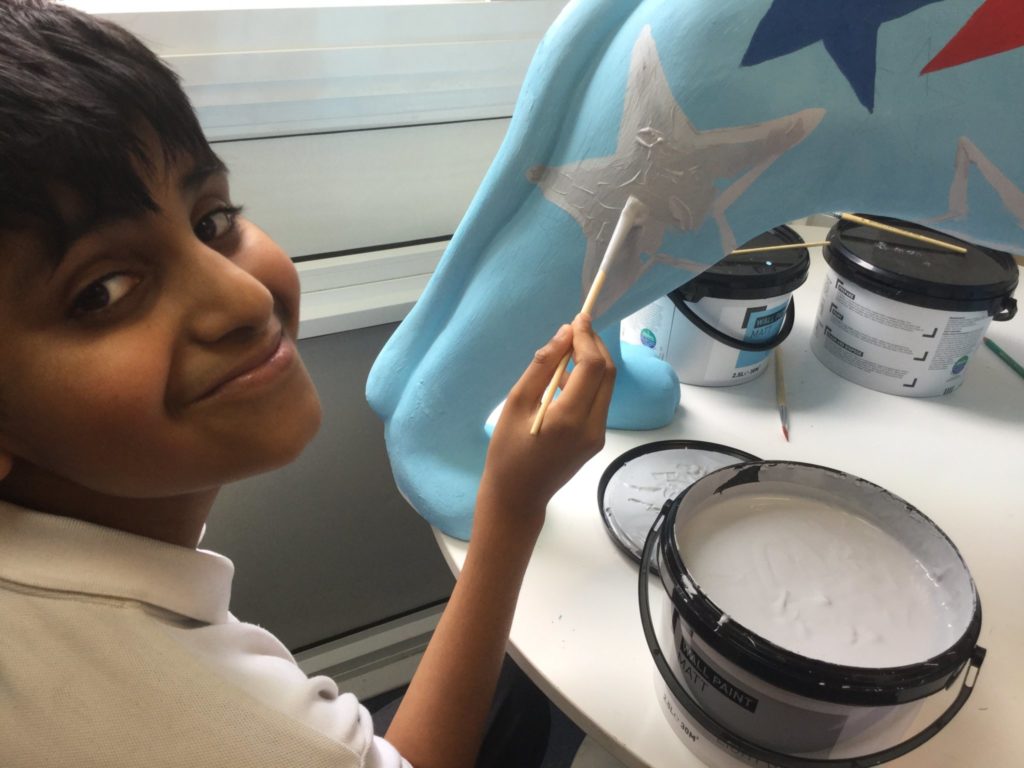
Pupils from Forest Bridge School in Maidenhead painting LEO, which was kindly sponsored by LEO Pharma for the unique special needs school. LEO was displayed outside the Thames Hospice shop in Windsor
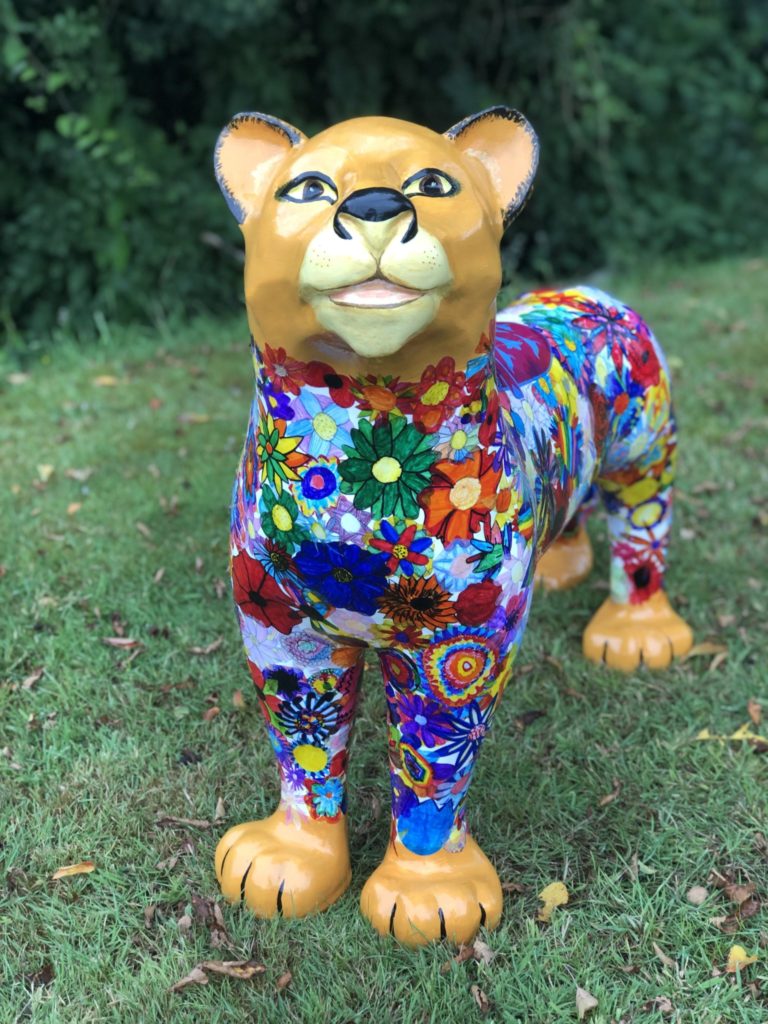
The beautiful 'Blossom', decorated by St Edward's First Catholic School pupils, was displayed by The Jelly Lounge in William Street, Windsor
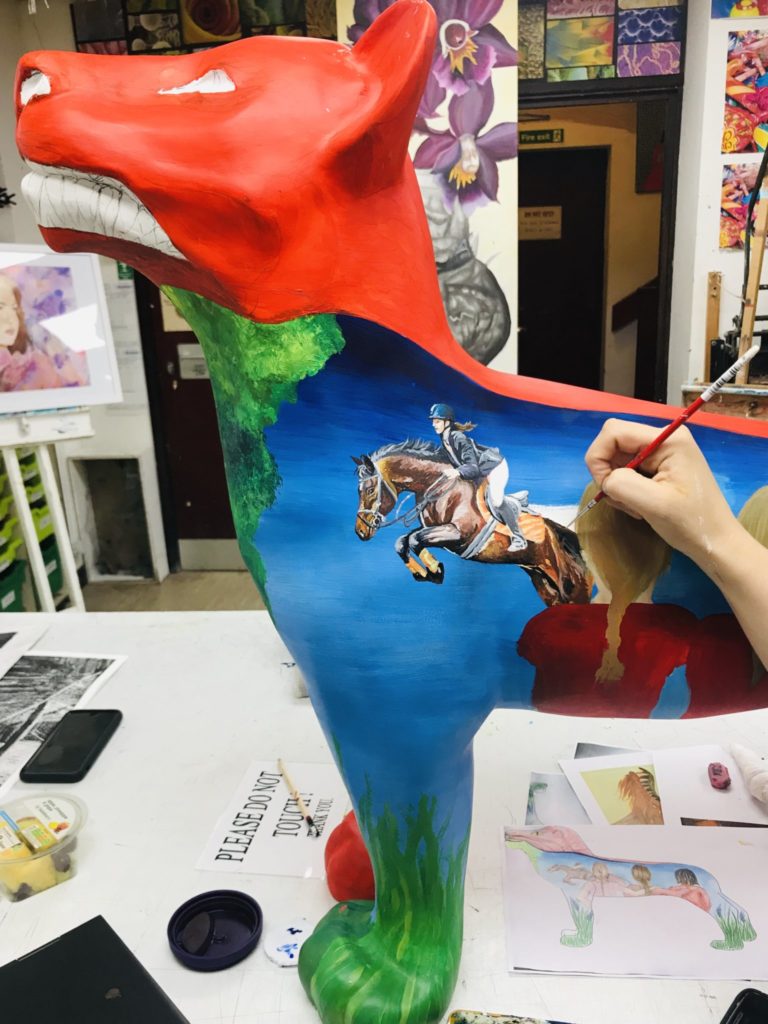
Great artwork from St George's Ascot pupils!
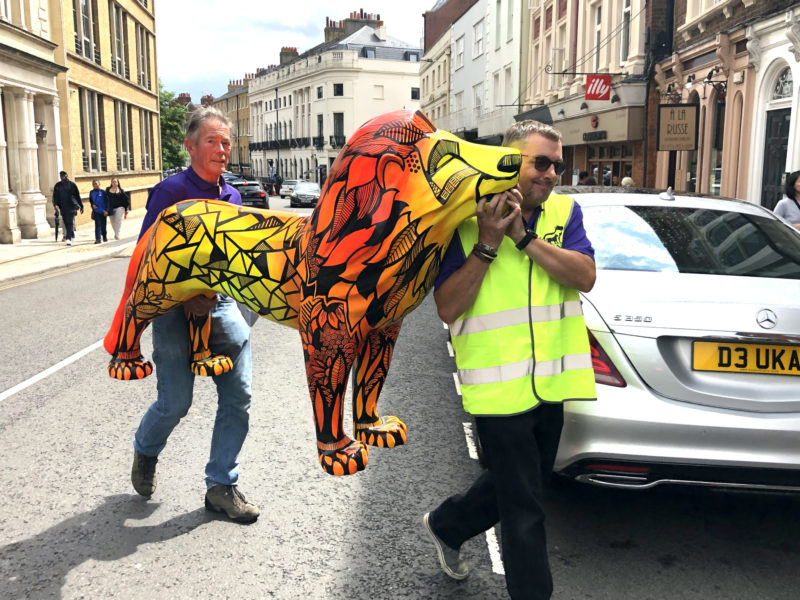
Lions in new homes for Christmas!
December 18, 2019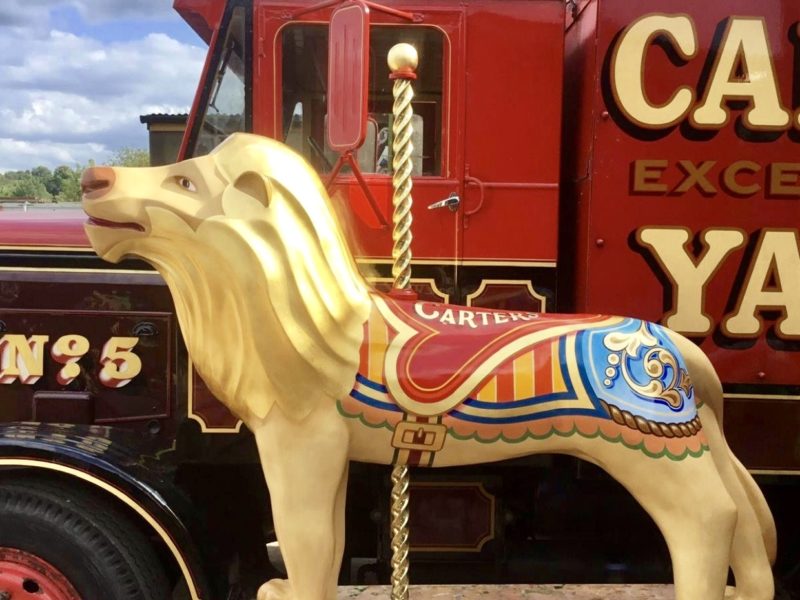
Bid for the LAST LION today!
December 14, 2019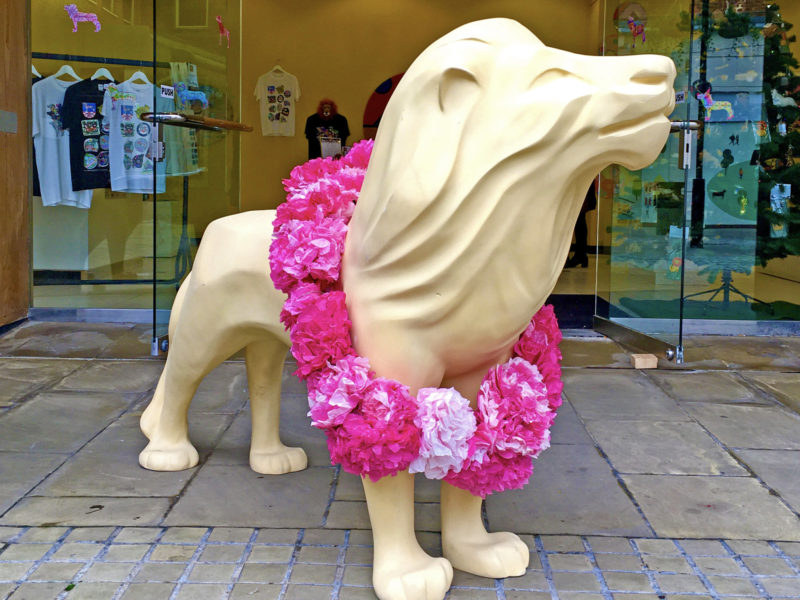
Raffle to win a Large Lion sculpture – draw 14 December
December 4, 2019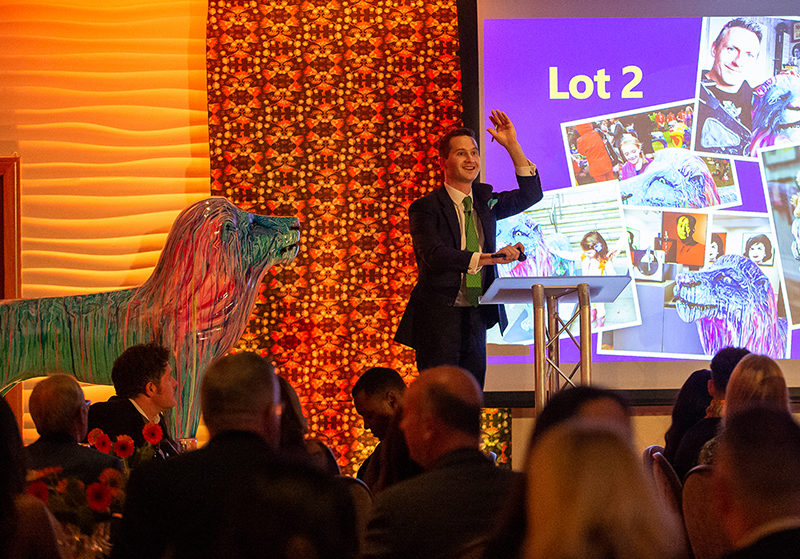
Lions Head off to Pastures New…
November 30, 2019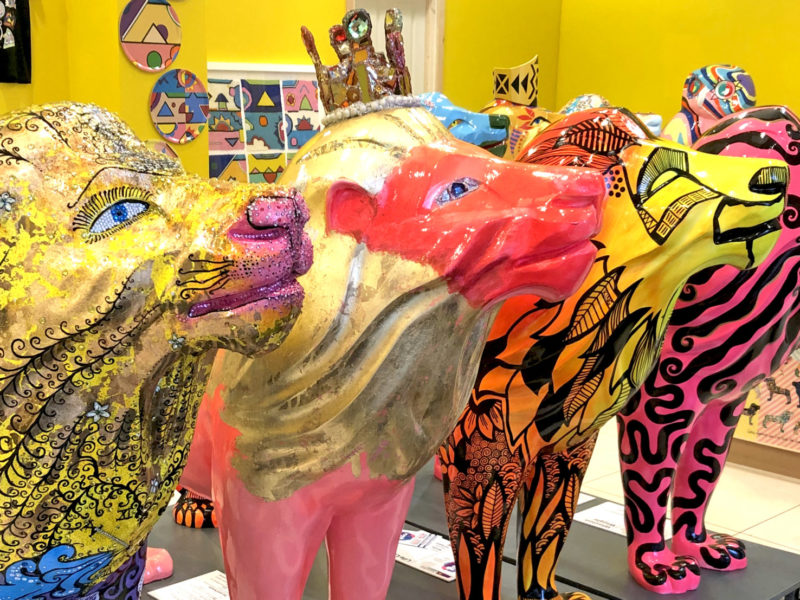
Place your bids for Thursday’s charity auction!
November 23, 2019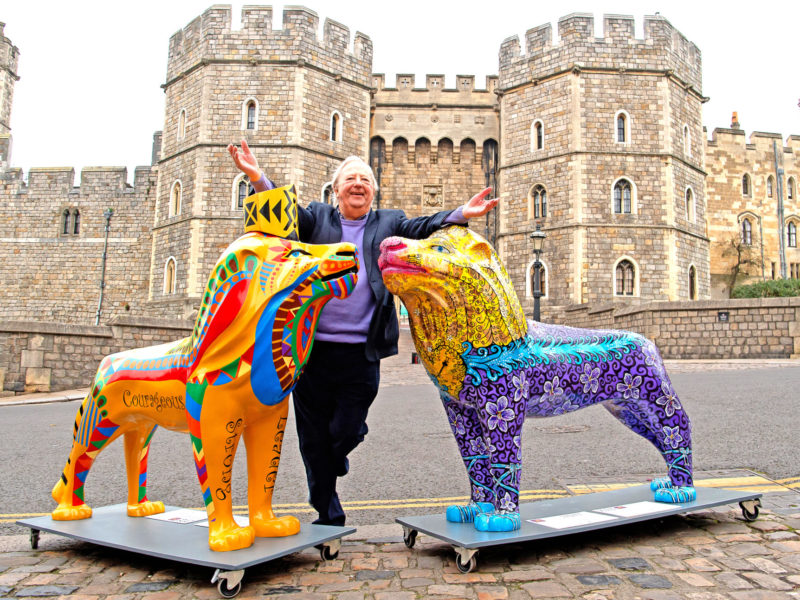
Auction Host Tim Brooke-Taylor visits the Pride!
November 23, 2019“‘Gromit Unleashed’ saw 1.18m visitors over the 10-week display period, of which 900,000 visited specifically to see the Gromit sculptures. Footfall to Bristol’s Museums doubled.”
Gromit Unleashed, Bristol“The King Bladud’s Pig project was the best thing that ever happened in Bath on many fronts. It really increased footfall around the city and helped independent retailers. It also brought people into Bath from the local environs, who continue to come long after re-discovering what a wonderful city Bath is.”
Annette Martin, Bath Aqua Glass“As one of the first businesses to sign up as a [Pig] sponsor, we saw the enormous positive benefits of being involved from the outset. The response from locals and visitors alike was remarkable.”
Martin Tracy, The Framing Workshop“Gromit Unleashed has helped shine a light on Bristol as a hub for culture, tourism and creativity and showcase its strengths in front of an international audience. We enjoyed tremendously positive publicity, welcomed more visitors from far and wide, and our businesses reaped the benefits.”
John Hirst, Chief Executive, Destination Bristol“The King Bladud’s Pigs were one of the best boosts to tourism that I have experienced.”
Charles Curnock, Administrator, Bath Abbey“The Swans of Wells sculpture trail really put Wells on the map in 2012 and attracted thousands of visitors to the city. Local businesses reported a significant increase in trade and people were drawn to parts of Wells they hadn’t visited before. The auction raised an incredible £100,000. We are all still talking about it today.”
Danny Unwin, Mayor of Wells 2012The Lion’s scientific name is Panthero Leo.
Female lions reach two-thirds of their adult size by the time they are two years old.
Lions run at a speed of up to 81km/h.
In the wild, lions live for an average of 12 years and up to 16 years. They live up to 25 years in captivity.
An adult male’s roar can be heard up to 8km away.
A female lion needs 5kg of meat a day. A male needs 7kg or more a day.
Although known as the ‘king of the jungle’, most lions live on open grasslands or savannah. Only one group of wild forest-dwelling lions remains in the Gir Forest in India.
Female lions do 85-90% of the hunting, whilst the males patrol the territory and protect the pride.
Lions hunt large animals such as zebra and wildebeest.
Lions used to be spread across most of Africa, but now are only found in sub-Saharan Africa. Lions have disappeared from 12 sub-Saharan countries in recent decades.
Lions are the most sociable of all big cats. They live in groups of 10-15 lions, known as prides.
The name for a baby lion is a cub, whelp or lionet.
Headline sponsor – Windsor Yards